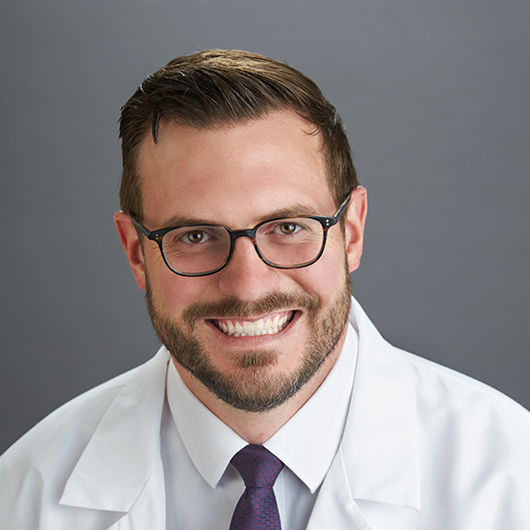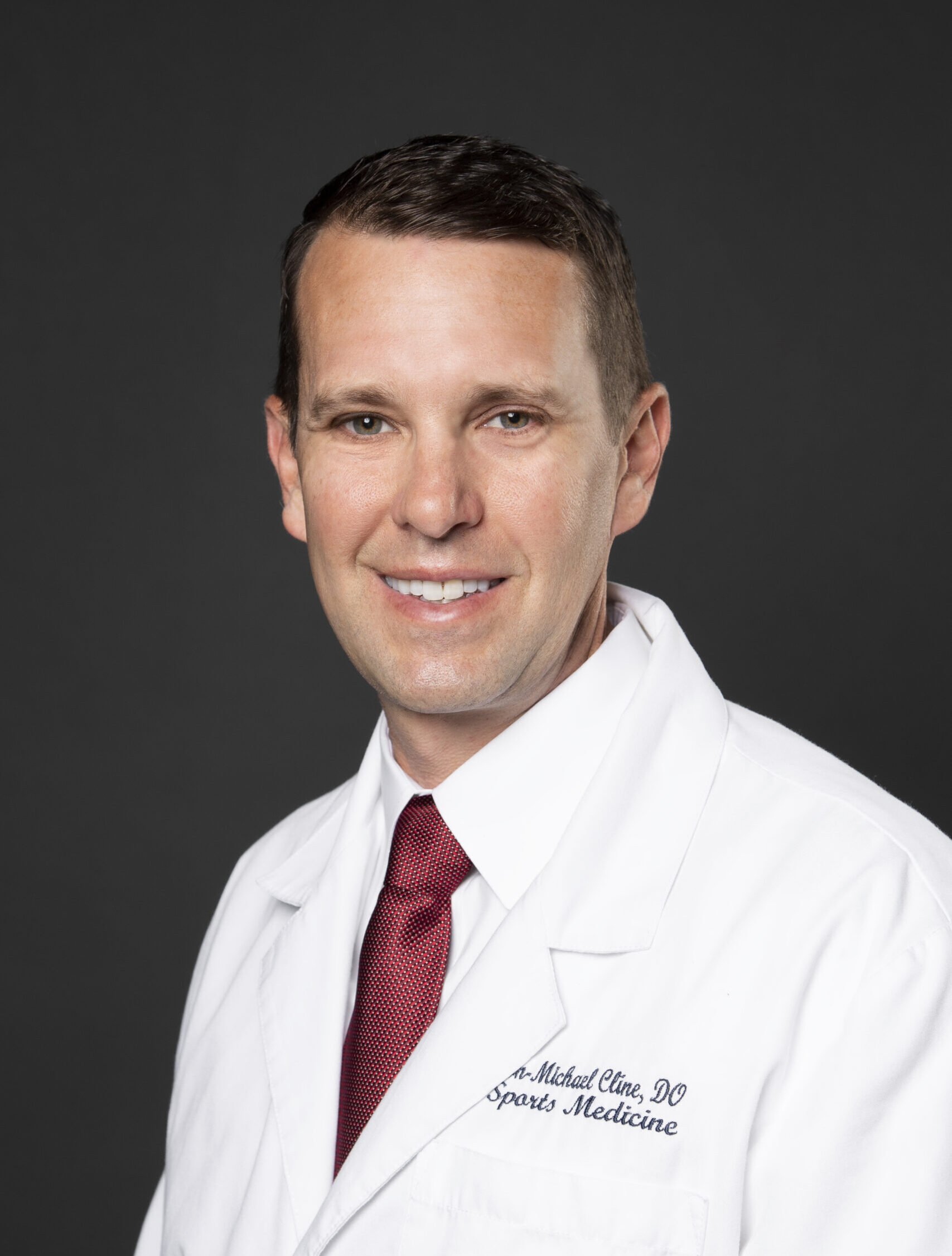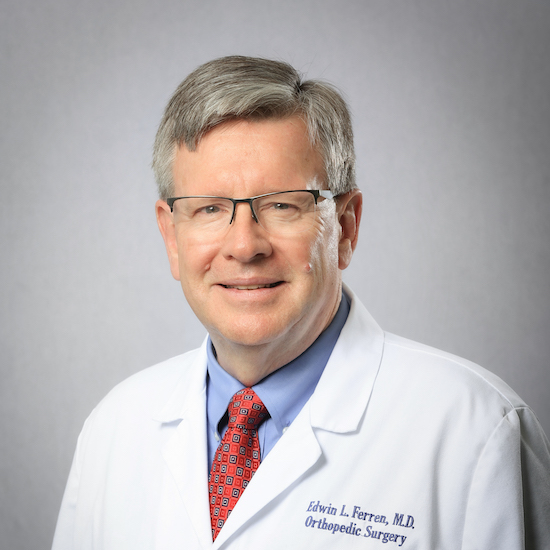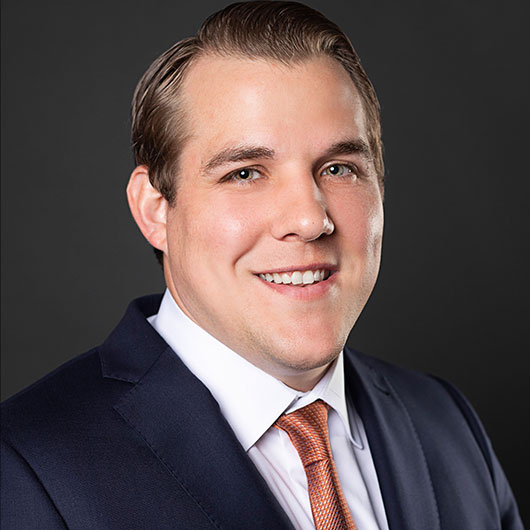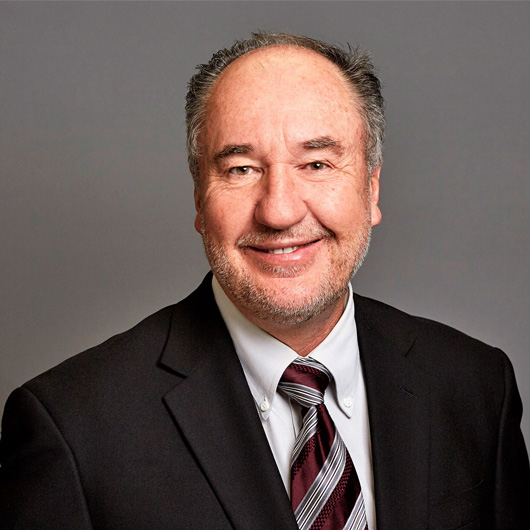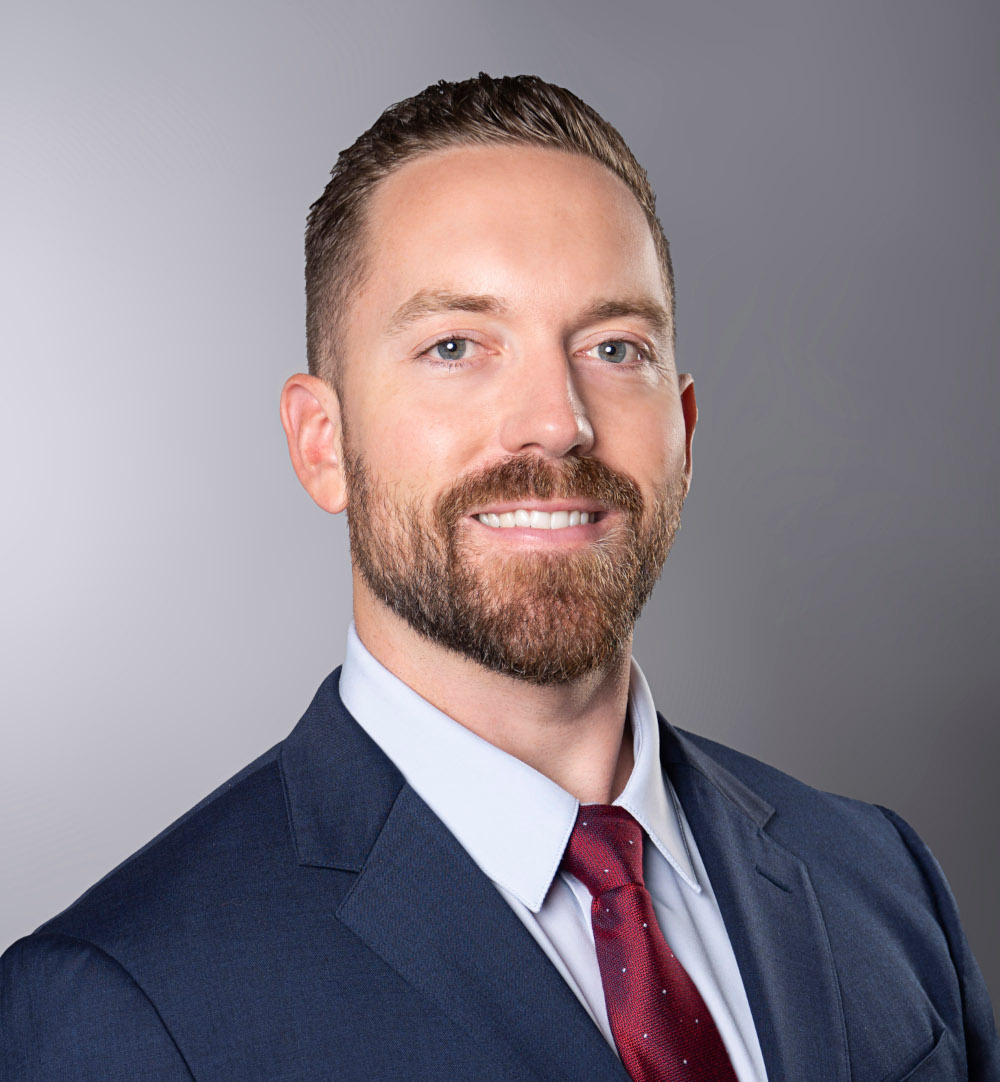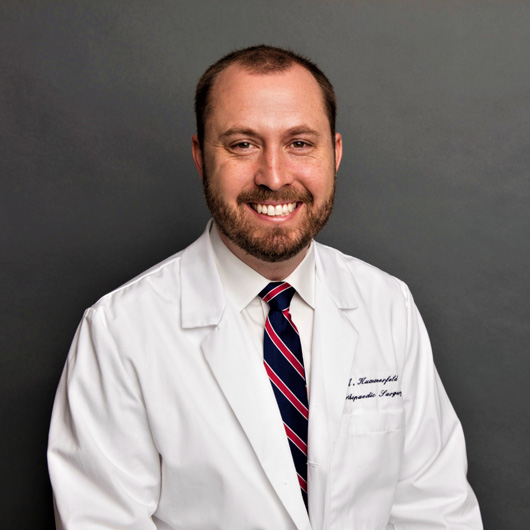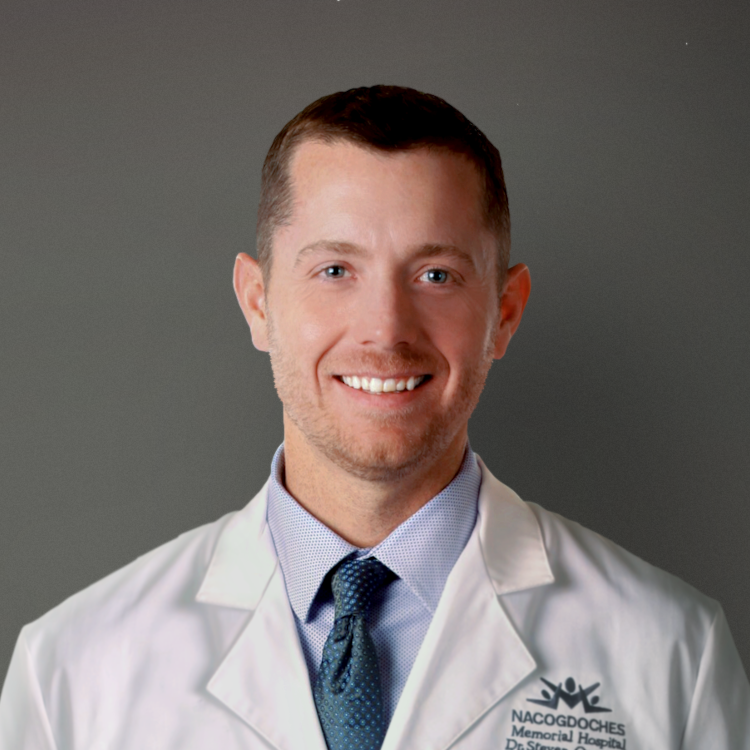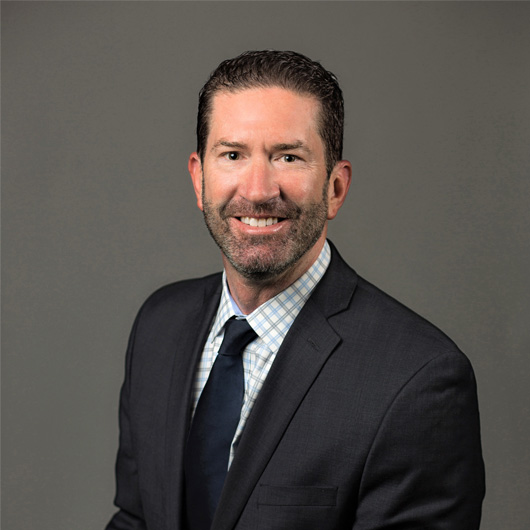Knee
Replacement & Treatments
 The knee is the body’s largest and most complex joint, connecting the tibia, the femur, and the patella together. With such an intricate anatomy, it’s no wonder that knee joint injuries are amongst the most common sports-related injuries in the world. With nearly 2.5 million documented emergency room visits annually, knee-related trauma most often occurs in youth and young adult athletes, but can also occur in adults and senior patients. Here at Azalea Orthopedics in both Tyler, TX and Longview, TX, it’s our mission to provide our patients with the best possible orthopedic care for all types of knee injuries.
The knee is the body’s largest and most complex joint, connecting the tibia, the femur, and the patella together. With such an intricate anatomy, it’s no wonder that knee joint injuries are amongst the most common sports-related injuries in the world. With nearly 2.5 million documented emergency room visits annually, knee-related trauma most often occurs in youth and young adult athletes, but can also occur in adults and senior patients. Here at Azalea Orthopedics in both Tyler, TX and Longview, TX, it’s our mission to provide our patients with the best possible orthopedic care for all types of knee injuries.
With state-of-the-art technology and in-depth experience, we work with our patients individually to find a treatment plan that’s the perfect fit. From rehabilitation and physical therapy, to total knee replacement, we guarantee that our knee doctors can help you get on your feet and back out onto the field.
Azalea Locations for
Knee Treatments
Azalea Orthopedics offers knee treatments at all of our orthopedic locations throughout East Texas which allows patients to receive specialized knee treatment with ease!
South Broadway Clinic – Tyler, TX
Mount Pleasant Clinic– Mount Pleasant, TX
Longview Clinic – Longview, TX
Palestine Clinic – Palestine, TX
Common Knee Injuries
Your knee is made up of a complex myriad of bones, ligaments, and tendons, all of which can be injured. Some of the most common types of sports-related injuries include fractures around the knee, dislocation of the knee, and sprains or tears of soft tissues such as ligaments or tendons. Oftentimes when you hurt your knee, more than one of these structures are damaged at the same time. Knee injuries cause swelling and intense pain, as well as a lack of stability while walking, running, or playing sports.
Fractures
One of the most commonly fractured bones in the knee is the patella, otherwise known as the kneecap. Due to the patella acting as a shield on top of your knee joint, it’s vulnerable to high amounts of stress and damage from a variety of different high-impact activities.
Dislocations
Dislocations take place when the bones of the knee fall off track, either partially or completely. The femur, the tibia, and the patella can all be pushed out of alignment by certain abnormalities in the structure of the knee, or by high-energy trauma through sports-related contact.
ACL Injuries
The ACL, or the anterior cruciate ligament, is one of the most common types of knee injuries in sports-related accidents. Those who play high-intensity sports such as soccer, football, and basketball run a greater risk of ACL trauma. From rapidly changing direction, or landing on your feet incorrectly, ACL injuries typically cause more damage to other structures of the knee simultaneously.
PCL Injuries
The PCL, or the posterior cruciate ligament, is often injured from an intense blow to the patella when the knee is in a bent position. Occurring most frequently from automobile accidents and sports-related impact, PCL tears are most often only partial tears, which can potentially heal on their own with proper rehabilitation and care.
Collateral Ligament Injuries
Caused by a high-intensity force or blow to either the inside or outside of the knee, collateral ligament damage is most often caused by accidents during contact sports. Thankfully, collateral ligament injuries occur less frequently than the majority of other knee injuries.
Meniscus Tears
Tears in the meniscus occur when the knee is twisting, pivoting, or when being tackled. Overtime, the meniscus can become weakened, and something as simple as awkwardly twisting while getting up from a chair can cause enough force to tear the menisci.
Tendon Tears
Both the quadriceps and the patellar tendon within the knee can be stretched out and torn. Most commonly occurring in middle-aged people who play running or jumping sports, a tear in one of the knees’ tendons can happen from a fall, direct force to the patella, or landing wrong from a jump.
Knee Arthritis
As many as 36 million people in the U.S. have some form of arthritis. The most common forms of arthritis are osteoarthritis (generally associated with aging), and rheumatoid arthritis (commonly referred to as crippling arthritis). Arthritis in its many forms may result in severe pain, with impaired joint mobility and function.
Non-Surgical Treatment at
Azalea Orthopedics
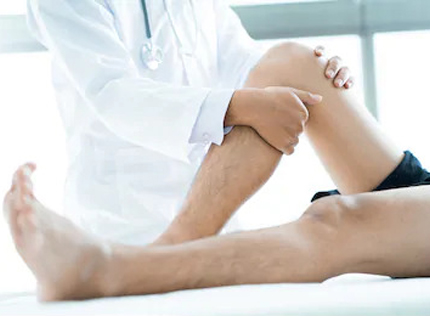
Treatment of knee injuries will vary depending upon your condition, intensity of symptoms, or the severity of your arthritic disease. At Azalea Orthopedics, our orthopedic surgeons strive to treat your knee injury symptoms with non-surgical procedures first. Opting for regimented physical therapy, immobilization of the knee with a brace or cast, and/or the use of non-steroidal anti-inflammatory medications, our knee doctors will do everything they can to treat your injury with more simplified measures than surgery.
For arthritis patients, our orthopedists may advise particular types of medication to initiate treatment. Over the past several years, there has been significant improvement in the medicines available for arthritis patients and their symptoms. Injections of a cortisone type drug into a painful joint frequently proves to be helpful. Other treatments for arthritis may be helpful in conjunction with medication and injections, such as physical therapy and braces or splints. Contact us today to schedule an appointment with a knee specialist.

Surgical Treatment
While surgery is always a last resort for our knee surgeons, as we’d like to exhaust non-surgical relief prior, some of the fractures and injuries surrounding the knee require surgery to restore function and mobility in your knee and leg. Oftentimes, such as with ACL tears, surgery can be performed arthroscopically, meaning that one of our orthopedic surgeons will use miniature surgical instruments or perform robotics-assisted surgery which is less invasive and provides faster healing time.
Knee
Replacement Surgery
Arthritis patients with severe joint pain and impairment may be candidates for knee replacement surgery. These procedures, in a very large percentage of cases, provide marked relief of pain, improving a patient’s ability to carry out the activities of daily living.
Total Knee Replacement
Most total knee replacement operations involve replacing the joint surfaces at the end of your thigh bone (femur) and at the top of your shin bone (tibia). A total knee replacement may also involve replacing the under-surface of your kneecap (patella) with a smooth plastic dome. Some surgeons prefer to preserve the natural patella if possible, but sometimes the decision will need to be made during the operation.
Replacement components are normally cemented in place, but if cement is not used, then the surface of the component facing the bone is textured or coated to encourage the bone to grow onto it, thus forming a natural bond. Another common technique is to use a mobile plastic bearing that isn’t firmly fixed to the metal components of the replacement, helping to reduce wear on your new joint.
Partial Knee Replacement
Our knee joints have three different compartments – the inner (medial), the outer (lateral), and the kneecap (patellofemoral). If arthritis affects only one side of your knee — usually the inner side —it may be possible to have partial knee replacement (sometimes called a unicompartmental replacement). Due to this technique involving a smaller incision in the knee than with a total knee replacement, it usually means a quicker recovery time and better functionality.
Patella (Kneecap) Replacement
Patella replacement involves replacing the surface area underneath the kneecap and its groove (the trochlea). This procedure is solely dependent upon whether or not the patella is the only component affected by arthritis. Kneecap replacement has a higher rate of failure than total knee replacement – which is normally caused by arthritis progressing to other parts of your knee later down the road. Some of our surgeons at Azalea Orthopedics will advise a total knee replacement instead, as the results are more predictable.
Our Knee Orthopedists
Meet our industry leading Total Knee Orthopedists.
Justin Bartley, M.D., FAAOS, FAANA
Dr. Justin Bartley is a Board-Certified and Fellowship-Trained Orthopedic Surgeon specializing in sports medicine, arthroscopy, and comprehensive shoulder surgery. Also, fully trained in general orthopedics and fracture management. Additionally, he has completed dedicated training in hip arthroscopy to better care for young patients with hip pain.
Timothy Beck, M.D.
Dr. Beck is a fellowship-trained, Board-Certified orthopedic surgeon specializing in foot and ankle conditions, knee injuries and total ankle replacements. He has previously served as a Board of Councilor from Texas to the American Academy of Orthopedic Surgeons.
Jon-Michael Cline, D.O.
Dr. Jon-Michael Cline is a fellowship trained, board certified Primary Care Sports Medicine Physician. Dr. Cline treats a variety of musculoskeletal conditions and specializes in non-surgical treatment of sports injuries, concussion management, and ortho biologics. Dr. Cline also specializes in non-operative treatment of both hip and knee pain. Depending on the patient's diagnosis, hips and knees can also be successfully treated with injections.
Robert W. Dennis, M.D.
Dr. Dennis has extensive training in sports medicine, including a sports medicine fellowship at the North Sydney Orthopedic & Sports Medicine Centre in Sydney, Australia. Certified in the Mako Robotic-Arm Technology. Dr. Dennis has the training and expertise to care for a wide-variety of sports related injuries.
Edwin Ferren, M.D.
Dr. Edwin Ferren is a Board-Certified orthopedic surgeon specializing in hand, hip, and knee repairs. He serves the Nacogdoches and surrounding areas. He is a member of the Texas Orthopedic Association and the Texas Medical Association.
Keith Fishbeck, DO
Keith Fishbeck, D.O. is a board-certified, fellowship-trained Orthopedic Sports Medicine Surgeon who specializes in conditions and treatments related to the Shoulder, Knee, and Hip. He has a special interest in shoulder replacement surgery, arthroscopic shoulder and knee surgery, ACL reconstruction, and cartilage restoration surgery. He is also fully trained in general orthopedics and fracture management. After receiving his undergraduate degrees from Texas A&M University, in College Station, Texas, Dr. Fishbeck earned his medical degree from Texas College of Osteopathic Medicine. He went on to complete his orthopedic residency at Oklahoma State University Medical Center, followed by advanced fellowship-training in orthopedic sports medicine at Beacon Orthopedics & Sports Medicine in Cincinnati, Ohio.
James Harris, M.D.
Dr. Harris received his fellowship training at the North Sydney Orthopedic and Sports Medicine Center in Sydney, Australia, where he specialized in sports medicine and complex knee surgery. Prior to Australia, Dr. Harris specializes in Shoulder, Knee, Elbow and Sports injuries. Board Certified, American Board of Orthopedic Surgery.
Andrew Hester, M.D.
Dr. Andrew Hester is a Board Certified, Fellowship-Trained Orthopedic Surgeon who specializes in hip and knee arthroplasty. He treats all conditions related to hip and knee arthroplasty from arthritis to painful or dysfunctional hip and knee replacements. He has had extensive training in direct anterior approach for total hip arthroplasty, robotic-assisted hip and knee arthroplasty, and unicompartmental knee arthroplasty (partial knee replacement).
L. Matthew Jones, M.D.
Nicknamed “Bones Jones” by President George W. Bush, Dr. Jones specializes in orthopedic surgery with a emphasis on arthroscopic knee and shoulder surgery for athletes and non-athletes. For knee pain and arthritis, Dr. Jones provides nonsurgical options. For severe knee arthritis, he has been certified for many years in the Mako Robotics System for total knee and partial knee replacement. He is Fellowship-Trained and Board-Certified by the American Board of Orthopedic Surgery.
Ken Kaminski, M.D.
Dr. Kaminski specializes in primary and complex hip and knee replacements, revision joint surgery, joint replacements, and hip and knee arthritis. He is Fellowship Trained and Board-Certified by the American Board of Orthopedic Surgery. Dr. Kaminski comes to Azalea from the Mayo Clinic, an internationally renowned institution known for its shaping and influence on primary and revision joint replacement quality. Certified in Mako Robotic Arm Technology.
David Kummerfeld, M.D.
Dr. Kummerfeld is a Board-Certified, Fellowship-Trained Orthopedic Surgeon specializing in shoulder and elbow arthroscopy/replacement and upper extremity injuries. Additionally, he specializes in total and partial knee replacements. Dr. Kummerfeld received advanced training from the world-renowned Kerlan Jobe Orthopedic Clinic in Los Angeles, California.
Steven Overturf, M.D.
Dr. Overturf is a Board-Certified orthopedic surgeon who offers cutting-edge procedures for orthopedic injuries and disorders. He is equipped to provide full-spectrum musculoskeletal care to residents of Nacogdoches and surrounding areas. His passion for bone and joint health, in conjunction with his diverse experiences, ensures you receive the best possible care.
Patrick Wupperman, M.D.
Patrick Wupperman, M.D., is board certified in orthopedic surgery and fellowship-trained in sports medicine by Dr. James Andrews of Birmingham, Alabama. He has extensive training in complex shoulder and knee injuries and has a special interest in Autologous Cartilage Implantation.
Get In Touch With
Azalea Orthopedics Today!
Your knees are some of the most complex joints in the body, and a healthy knee is crucial for day-to-day activity and leading a happy life. Over time, the structures that make up your knees can wear down and cause painful injuries. Here at Azalea Orthopedics, our team of highly experienced orthopedic surgeons are prepped and ready to help answer any questions you have regarding the intricacies of the knee joint and its surrounding ligaments and tissues. If you are experiencing ongoing knee pain from arthritis, or have injured your knee through a high-impact sport or accident, we can help. Call us today to learn more about the orthopedic treatments we offer, or to schedule an appointment at one of our clinics near you!

